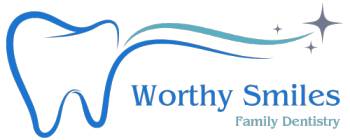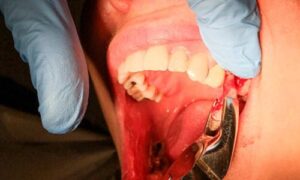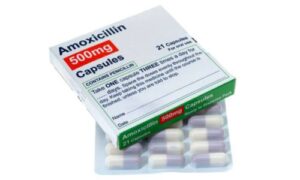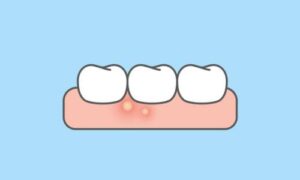Various factors, including injury, infection, inflammation, and structural problems, are the reasons behind jaw pain. The temporomandibular joint (TMJ), which connects the jaw to the skull, is a common source of jaw pain. Other potential causes of jaw pain include toothaches, sinus infections, and nerve disorders.
This article will explore the reasons behind jaw pain in more detail.
Temporomandibular Joint (TMJ) Disorders
TMJ disorders are a common cause of jaw pain. These disorders occur when the TMJ becomes inflamed or damaged, leading to pain and discomfort. Common symptoms of TMJ disorders include pain or tenderness in the jaw joint, difficulty opening or closing the mouth, and clicking or popping sounds when opening the mouth.
The exact cause of TMJ disorders is not always clear, but some factors that can contribute to the condition include arthritis, injury to the jaw, teeth grinding or clenching, and stress.
Dental Problems
Dental problems can also cause jaw pain. Tooth decay, gum disease, and abscessed teeth are all potential culprits. When a tooth is infected, the bacteria can spread to the surrounding tissue, causing inflammation and pain. Sometimes, the pain may be severe enough to cause jaw pain.
Another dental problem that can lead to jaw pain is bruxism or teeth grinding. This condition can cause wear and tear on the teeth and jaw, leading to pain and discomfort.
Sinus Problems
When the sinuses become inflamed, the pressure can cause pain in the upper jaw and teeth. Other symptoms, such as a stuffy or runny nose, headache, and fever, often accompany this pain. Sinus infections or allergies can also cause jaw pain.
Trauma or Injury
Trauma or injury to the jaw can also cause pain. This can occur due to a fall, car accident, or another impact. In some cases, the trauma may cause a fracture in the jaw, which can be very painful.
Nerve Disorders
Nerve disorders can also cause jaw pain. Trigeminal neuralgia, for example, is a condition that causes intense facial pain, including pain in the jaw. Other nerve disorders that can cause jaw pain include Bell’s palsy, which affects the facial muscles, and glossopharyngeal neuralgia, which affects the tongue and throat.
Structural Problems
Structural problems with the jaw can also lead to pain. For example, malocclusion, or a misalignment of the teeth and jaw, can cause pain and discomfort. This condition can occur as a result of genetics or injury.
Treatment for Jaw Pain
The treatment for jaw pain depends on the underlying cause of the condition. In some cases, self-care measures, such as rest, ice, and over-the-counter pain relievers, may be sufficient to relieve the pain. However, if the pain persists or is severe, it is essential to see a doctor or dentist for further evaluation.
Treatment for TMJ disorders may include physical therapy, medication, or surgery. Dental problems, such as tooth decay or gum disease, may require treatment by a dentist, such as a filling or a root canal. Sinus problems may be treated with antibiotics or other medications, while trauma or injury may require jaw immobilization and other supportive measures.
In some cases, jaw pain may be related to an underlying medical condition, such as arthritis or nerve disorders. In these cases, treatment for the underlying condition may be necessary to relieve the jaw pain.
Preventing Jaw Pain
Several steps can be taken to prevent jaw pain. These include:
- Maintaining good dental hygiene to prevent tooth decay and gum disease
- Using proper posture when sitting and standing to reduce stress on the jaw
- Avoiding excessive chewing of gum or tough foods
- Managing stress through relaxation techniques, such as meditation or yoga
- Wearing a mouthguard at night to prevent teeth grinding
- Seeking prompt treatment for sinus infections or allergies to avoid inflammation and pressure in the sinuses
It is important to note that some causes of jaw pain, such as genetics or injury, cannot be prevented. However, taking steps to maintain good dental health and manage stress can help reduce the risk of developing jaw pain.
Conclusion
Various factors, including TMJ disorders, dental problems, sinus infections, trauma or injury, nerve disorders, and structural issues, can cause jaw pain. Treatment for jaw pain depends on the condition’s underlying cause and may include self-care measures, medication, physical therapy, or surgery. Preventing jaw pain can be achieved through good dental hygiene, proper posture, avoiding excessive chewing, managing stress, and seeking prompt treatment for sinus infections or allergies. See a doctor or dentist if jaw pain persists or is severe, as early treatment can help prevent complications and further damage to the jaw.
FAQ’s
What are the common symptoms of jaw pain?
Common symptoms of jaw pain include pain or tenderness in the jaw joint, difficulty opening or closing the mouth, clicking or popping sounds when opening the mouth, toothaches, headaches, and facial pain.
What causes jaw pain?
Various factors, including TMJ disorders, dental problems, sinus infections, trauma or injury, nerve disorders, and structural issues, can cause jaw pain.
How is jaw pain diagnosed?
Diagnosis of jaw pain typically involves a physical exam and medical history review. Imaging tests, such as X-rays or CT scans, may be ordered to help diagnose the underlying cause of the pain.
How is jaw pain treated?
Treatment for jaw pain depends on the underlying cause of the condition. Treatment options may include medication, physical therapy, or surgery. Self-care measures, such as rest, ice, and over-the-counter pain relievers, may be sufficient to relieve the pain in some cases. However, if the pain persists or is severe, it is essential to see a doctor or dentist for further evaluation.
Can jaw pain be prevented?
Some causes of jaw pain, such as genetics or injury, cannot be prevented. However, taking steps to maintain good dental health and manage stress can help reduce the risk of developing jaw pain. Wearing a mouthguard at night to prevent teeth grinding can also help prevent jaw pain.














